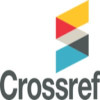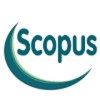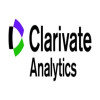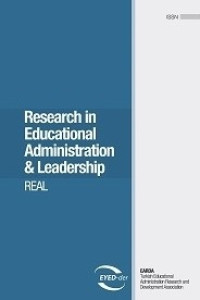Research Article
Aim & Scope
Research in Educational Administration and Leadership (REAL) is a non-commercial, open-access, peer-reviewed international journal that aims to provide a platform for researchers to publish up-to-date research articles on educational administration and leadership at all levels of education – from pre-primary to higher education. The journal of REAL accepts submissions using any research methodology, including case studies, reviews, mixed-methods studies, quantitative and qualitative research, and innovative research methodologies. Only a limited number of original and, thus, pioneering scale development studies are intended for publication provided that that they are primarily concerned with new issues in the field of educational administration and leadership.
The scope of the journal involves education policy, educational administration and leadership theories, and methodology-informed research in educational administration, management, and leadership that may have a direct or indirect effect on educational stakeholders and decision-makers. Submissions that are not explicitly linked to educational administration and leadership scholarship will not be considered for publication.
The research articles may draw from primary or secondary data sources, such as surveys, observations, knowledge and practice of education policymakers, practitioners, and researchers in order to form a global topic of discussion for all those engaged in the field of educational administration and leadership. Researchers from all types of educational institutions, including K–12 schools, colleges and universities, adult education centers, non–governmental educational groups are encouraged to submit their papers addressing timely topics and critical issues in the field.
Author Guidelines
The REAL embraces various research methods, including quantitative, qualitative, mixed-method studies, case studies, reviews, or new research practices. Editorial team also welcomes conceptual papers seeking to address a wide spectrum of issues in the practice and theory of educational administration and leadership.
Prospective authors should note that only original and previously unpublished manuscripts will be considered for publication. All submissions will be checked in Turnitin software for originality to ensure that the manuscripts do not exceed 19% similarity rate. The submissions are to be done in two separate files, including the contents given below:
1. Cover Page: The cover page is to include the title of the paper, author name(s), institutional affiliation(s), contact information, and short bios, together with the authors'(if there are two or more authors) CRediT taxonomy at the end. Submissions that are not organized according to the journal format will be returned to the corresponding author immediately. An additional cover letter is optional but much appreciated.
2. Main Document: Anonymized manuscript for the blind review process. No author(s) or institution information should be provided with this version.
All required materials, including the cover page and the manuscript, must be uploaded in their final form to the online journal administration system.: https://dergipark.org.tr/en/journal/329/submission/step/manuscript/new
Style and Format
Manuscripts should be submitted in Word format. Please ensure the word document of your manuscript is anonymous for peer review before you upload it. Style and format for submissions are presented below:
- All manuscripts should be typed in Times New Roman font, 12-point size, and double-spaced throughout the paper.
- The overall structure of the manuscript should conform to the APA Style Guide (7th edition), including formatting of references, tables and figures, as well as all other APA formatting concerns.
- Manuscripts should also be written with these subtitles in the following order: Title, Abstract, Keywords, The Main Text, References, Appendices (if any), Table(s), and Figure(s).
- Please see an example of the manuscript structure at https://owl.purdue.edu/owl/research_and_citation/apa_style/apa_formatting_and_style_guide/apa_sample_paper.html
Abstract
Please do not include any references in your abstract. It should briefly and clearly set out the main objective(s), results, and conclusions of the research with max. 250 words in length.
Headings and Subheadings
For the subheadings, the author(s) are allowed to organize them in a way that best suits the present research. However, the following first-level headings are required in the paper: introduction, method, results, discussion.
Manuscript Length
A regular article should run between 4000-8000 words, including the main text, references, tables and figures. On occasion, longer manuscripts can be considered where appropriate, depending upon the editorial decision.
Language
Articles written in English are welcomed from all countries. Spelling may follow either British or American conventions but must be consistent throughout. Please ensure that overall use of English, punctuation, sentence structure, and spelling errors in the text were reviewed and corrected prior to submission.
Double-Blind Peer Review
After initial editorial review, all manuscripts are sent to at least two members of the Editorial Review Board and/or invited reviewers with special competence in the area covered. Based on reviewer comments, the Editor is responsible for the final decision regarding acceptance/revision/rejection of articles.
Author Credits
The REAL uses the CRediT Taxonomy to define author contributions. All submissions must include a cover page with an author contribution list, as exemplified below. The corresponding author is expected to present CRediT details that provide the opportunity to share an accurate and detailed description of the authors' contributions to the submitted manuscript. For articles that are based primarily on a dissertation or thesis, it is strongly recommended that the student is listed as the first/principal author.
The role(s) of all authors should be listed, using the relevant categories.
Authors may have contributed in multiple roles. This information must be provided after the authors' short bios in the cover page. The roles of authors may be classified as the followings, but not limited to:
Conceptualization (Ideas; formulation or evolution of overarching research goals and aims).
Methodology (Development or design of methodology; creation of models).
Software (Programming, software development; designing computer programs; implementation of the computer code, etc.).
Formal analysis (Application of statistical, mathematical, computational, or other formal techniques to analyze or synthesize study data).
Investigation (Conducting a research and investigation process, specifically performing the experiments, or data/evidence collection).
Resources (Provision of study materials, reagents, materials, participants, samples, instrumentation, computing resources, or other analysis tools).
Writing – original draft preparation (Creation and/or presentation of the published work, specifically writing the initial draft (including substantive translation).
Writing – review and editing (Preparation, creation, and/or presentation of the published work by those from the original research group, specifically critical review, commentary, or revision – including pre-or post-publication stages)
Supervision (Oversight and leadership responsibility for the research activity planning and execution, including mentorship external to the core team).
Project administration (Management and coordination responsibility for the research activity planning and execution).
Funding acquisition (Acquisition of the financial support for the project leading to this publication).
The corresponding author may use the following example to state author contributions as authorship credits:
Tanya Bush (Conceptualization/Administration - formulated research goals and aims, and administered the research)
William Star and Selim Metin (Methodology - designed the methodology)
Helen Woody and Alice Silen (Writing, review, and editing - prepared and/or presented the published work)
Source: https://onlinelibrary.wiley.com/doi/full/10.1002/leap.1210
Ethical Principles and Publication Policy
The ethics statement of the REAL is based on the Code of Conduct guidelines of the Committee on Publication Ethics (COPE), available at www.publicationethics.orgThis journal follows the COPE Code of Conduct and Best Practice Guidelines for Journal Editors and the Code of Conduct for Journal Publishers.
Duties of Editors
Fair play and editorial independence
Editors evaluate submitted manuscripts exclusively on the basis of their academic merit (importance, originality, study’s validity, clarity) and its relevance to the journal’s scope, without regard to the authors’ race, gender, sexual orientation, ethnic origin, citizenship, religious belief, political philosophy or institutional affiliation. Decisions to edit and publish are not determined by the policies of governments or any other agencies outside of the journal itself. The Editor-in-Chief has full authority over the entire editorial content of the journal and the timing of publication of that content.
Confidentiality
Editors and editorial staff will not disclose any information about a submitted manuscript to anyone other than the corresponding author, reviewers, potential reviewers, other editorial advisers, and the publisher, as appropriate.
Disclosure and conflicts of interestEditors and editorial board members will not use unpublished information disclosed in a submitted manuscript for their own research purposes without the authors’ explicit written consent. Privileged information or ideas obtained by editors as a result of handling the manuscript will be kept confidential and not used for their personal advantage. Editors will recuse themselves from considering manuscripts in which they have conflicts of interest resulting from competitive, collaborative, or other relationships/connections with any of the authors, companies or institutions connected to the papers; instead, they will ask another member of the editorial board to handle the manuscript.
Publication decisions
The editors ensure that all submitted manuscripts being considered for publication undergo peer-review by at least two reviewers who are expert in the field. The Editor-in-Chief is responsible for deciding which of the manuscripts submitted to the journal will be published, based on the validation of the work in question, its importance to researchers and readers, the reviewers’ comments, and such legal requirements as are currently in force regarding libel, copyright infringement and plagiarism. The Editor-in-Chief may confer with other editors or reviewers in making this decision.
Involvement and cooperation in investigations
Editors (in conjunction with the publisher and/or society) will take responsive measures when ethical concerns are raised with regard to a submitted manuscript or published paper. Every reported act of unethical publishing behaviour will be looked into, even if it is discovered years after publication. Editors follow the COPE Flowcharts when dealing with cases of suspected misconduct. If, on investigation, the ethical concern is well-founded, a correction, retraction, expression of concern or other note as may be relevant, will be published in the journal.
Duties of Reviewers
Contribution to editorial decisions
Peer review assists editors in making editorial decisions and, through editorial communications with authors, may assist authors in improving their manuscripts. Peer review is an essential component of formal scholarly communication and lies at the heart of scientific endeavour.
Promptness
Any invited referee who feels unqualified to review the research reported in a manuscript or knows that its prompt review will be impossible should immediately notify the editors and decline the invitation to review so that alternative reviewers can be contacted.
Confidentiality
Any manuscripts received for review are confidential documents and must be treated as such; they must not be shown to or discussed with others except if authorized by the Editor-in-Chief (who would only do so under exceptional and specific circumstances). This applies also to invited reviewers who decline the review invitation.
Standards of objectivity
Reviews should be conducted objectively and observations formulated clearly with supporting arguments so that authors can use them for improving the manuscript. Personal criticism of the authors is inappropriate.
Acknowledgement of sources
Reviewers should identify relevant published work that has not been cited by the authors. Any statement that is an observation, derivation or argument that has been reported in previous publications should be accompanied by the relevant citation. A reviewer should also notify the editors of any substantial similarity or overlap between the manuscript under consideration and any other manuscript (published or unpublished) of which they have personal knowledge.
Disclosure and conflicts of interest
Any invited referee who has conflicts of interest resulting from competitive, collaborative, or other relationships or connections with any of the authors, companies or institutions connected to the manuscript and the work described therein should immediately notify the editors to declare their conflicts of interest and decline the invitation to review so that alternative reviewers can be contacted.
Unpublished material disclosed in a submitted manuscript must not be used in a reviewer’s own research without the express written consent of the authors. Privileged information or ideas obtained through peer review must be kept confidential and not used for the reviewer’s personal advantage. This applies also to invited reviewers who decline the review invitation.
Duties of Authors
Reporting standards
Authors of original research should present an accurate account of the work performed and the results, followed by an objective discussion of the significance of the work. The manuscript should contain sufficient detail and references to permit others to replicate the work. Review articles should be accurate, objective and comprehensive, while editorial 'opinion' or perspective pieces should be clearly identified as such. Fraudulent or knowingly inaccurate statements constitute unethical behaviour and are unacceptable.
Data access and retention
Authors may be asked to provide the raw data of their study together with the manuscript for editorial review and should be prepared to make the data publicly available if practicable. In any event, authors should ensure accessibility of such data to other competent professionals for at least 10 years after publication (preferably via an institutional or subject-based data repository or other data centre), provided that the confidentiality of the participants can be protected and legal rights concerning proprietary data do not preclude their release.
Originality and plagiarism
Authors should ensure that they have written and submit only entirely original works, and if they have used the work and/or words of others, that this has been appropriately cited. Publications that have been influential in determining the nature of the work reported in the manuscript should also be cited. Plagiarism takes many forms, from "passing off" another's paper as the author's own, to copying or paraphrasing substantial parts of another's paper (without attribution), to claiming results from research conducted by others. Plagiarism in all its forms constitutes unethical publishing behaviour and is unacceptable.
Multiple, duplicate, redundant or concurrent submission/publication
Papers describing essentially the same research should not be published in more than one journal or primary publication. Hence, authors should not submit for consideration a manuscript that has already been published in another journal. Submission of a manuscript concurrently to more than one journal is unethical publishing behaviour and unacceptable.
The publication of some kinds of articles (such as clinical guidelines, translations) in more than one journal is sometimes justifiable, provided that certain conditions are met. The authors and editors of the journals concerned must agree to the secondary publication, which must reflect the same data and interpretation of the primary document. The primary reference must be cited in the secondary publication.
Authorship of the manuscript
Only persons who meet these authorship criteria should be listed as authors in the manuscript as they must be able to take public responsibility for the content: (i) made significant contributions to the conception, design, execution, data acquisition, or analysis/interpretation of the study; and (ii) drafted the manuscript or revised it critically for important intellectual content; and (iii) have seen and approved the final version of the paper and agreed to its submission for publication. All persons who made substantial contributions to the work reported in the manuscript (such as technical help, writing and editing assistance, general support) but who do not meet the criteria for authorship must not be listed as an author, but should be acknowledged in the "Acknowledgements" section after their written permission to be named as been obtained. The corresponding author should ensure that all appropriate coauthors (according to the above definition) and no inappropriate coauthors are included in the author list and verify that all coauthors have seen and approved the final version of the manuscript and agreed to its submission for publication.
Disclosure and conflicts of interest
Authors should—at the earliest stage possible (generally by submitting a disclosure form at the time of submission and including a statement in the manuscript)—disclose any conflicts of interest that might be construed to influence the results or their interpretation in the manuscript. Examples of potential conflicts of interest that should be disclosed include financial ones such as honoraria, educational grants or other funding, participation in speakers’ bureaus, membership, employment, consultancies, stock ownership, or other equity interest, and paid expert testimony or patent-licensing arrangements, as well as non-financial ones such as personal or professional relationships, affiliations, knowledge or beliefs in the subject matter or materials discussed in the manuscript. All sources of financial support for the work should be disclosed (including the grant number or other reference number if any).
Acknowledgement of sources
Authors should ensure that they have properly acknowledged the work of others, and should also cite publications that have been influential in determining the nature of the reported work. Information obtained privately (from conversation, correspondence or discussion with third parties) must not be used or reported without explicit, written permission from the source. Authors should not use information obtained in the course of providing confidential services, such as refereeing manuscripts or grant applications, unless they have obtained the explicit written permission of the author(s) of the work involved in these services.
Hazards and human or animal subjects
If the work involves chemicals, procedures or equipment that have any unusual hazards inherent in their use, the authors must clearly identify these in the manuscript. If the work involves the use of animals or human participants, the authors should ensure that all procedures were performed in compliance with relevant laws and institutional guidelines and that the appropriate institutional committee(s) has approved them; the manuscript should contain a statement to this effect. Authors should also include a statement in the manuscript that informed consent was obtained for experimentation with human participants. The privacy rights of human participants must always be observed.
Peer review
Authors are obliged to participate in the peer review process and cooperate fully by responding promptly to editors’ requests for raw data, clarifications, and proof of ethics approval, patient consents and copyright permissions. In the case of a first decision of "revisions necessary", authors should respond to the reviewers’ comments systematically, point by point, and in a timely manner, revising and re-submitting their manuscript to the journal by the deadline given.
When authors discover significant errors or inaccuracies in their own published work, it is their obligation to promptly notify the journal’s editors or publisher and cooperate with them to either correct the paper in the form of an erratum or to retract the paper. If the editors or publisher learns from a third party that a published work contains a significant error or inaccuracy, then it is the authors’ obligation to promptly correct or retract the paper or provide evidence to the journal editors of the correctness of the paper.
Fundamental errors in published works
Price Policy
The REAL is a non-commercial and open-access journal.
Indexes
Citation Indexes
Other Indexes
Journal Boards
FOUNDING EDITOR (R.I.P)
Editor-in-Chief(s)
Associate Editors
Editoral Assistants
Section Editors
Advisory Panel
Editorial Board




















